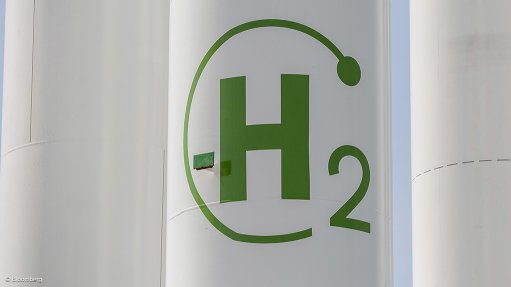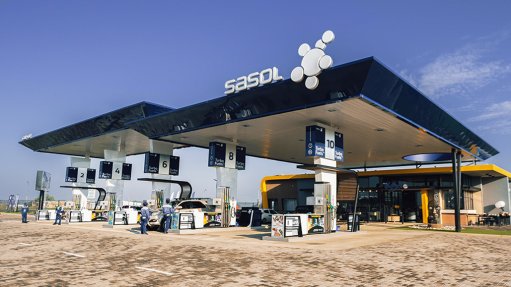Battle Of Powers In The Zone
This article has been supplied as a media statement and is not written by Creamer Media. It may be available only for a limited time on this website.
How the battle of the super powers, China and the United States, plays out in coming years will be one of the most closely watched issues in the Indo-Pacific Asia region, according to experts at today’s In the Zone event at The University of Western Australia. The Hon Stephen Smith, former Minister for Foreign Affairs and the Director of the Perth USAsia Centre, said the rise of China would continue to be an international focus point.
“How will the world respond to the rise of another great power? Then we will have to grapple with the rise of India – three super powers,” he said. “As a great power rises, there are inevitably going to be tensions, and we are already seeing military flashpoints.” Mr Smith said that while comparisons were made to the US-Soviet battles of the past, the key difference between US-China issues now was that the US and Soviet had had next to no economic engagement. “Now we have the reverse. We have a highly sophisticated economic relationship between China and the US,” he said. “There are dialogues occurring on many levels.”
Mr Smith said there had been a number of subtle but highly relevant changes to the Indo-Pacific Asia regional architecture in recent years that were prompting the US and China to work together more closely. He said the single most important change in a regional sense had been the admittance to the East Asia Summit of the US. Globally, the introduction of the G20, the premier forum for international economic cooperation and decision-making, had been a significant initiative. “There are now multiple occasions where leaders get together and try to work through their differences, towards achieving greater security and prosperity,” Mr Smith said, adding that the failure of US President, Barack Obama, to attend the last East Asia Summit and APEC Leaders’
Meeting last year had been a significant error by the US.
Mr Yoichi Kato, National Security Correspondent The Asahi Shimbun, said while there was increased likelihood of a clash between the US and China, both countries were reasonable enough to avoid conflict. Professor Linda Jakobson, Visiting Professor United States Studies Centre, said China would
need to accept the need to share power, and prove its ability to stay on track with reform processes.
For more information about UWA: www.uwa.edu.au
In the session, which was focused on security and rights of passage issues in the region and moderated by Dr Bates Gill, CEO of the United States Studies Centre, other identified risks included the North Korean and Iran nuclear programs. Mr Smith described North Korea as “the masters of provocation” who had, over time, been good at getting the international community to reward bad behaviour. Professor Kim Tae-Hyo, former Senior Secretary for National Security Forces in Korea, said he was confident the rules of engagement between North Korea and Korea would minimise the likelihood of future clashes between the two countries.
However, he said that inconsistent approaches to North Korea by the international community created challenges. Maritime and territorial tensions and disputes, such as those between China and the Philippines, were often small in terms of territory, but would continue to have serious international
implications. Mr Smith said a new agreement reached in April at the Western Pacific Naval Symposium in China that would ensure miscommunication between naval vessels did not develop into conflict was a very positive step. Mr Smith said there was strong potential for Australian companies to continue to grow the Australian presence in Asia, but offered some advice for large businesses seeking to have a presence in the new and emerging super powers of China and India: “If you are not in China already, then you are 30 years too late. But you can get in on the ground floor in India. Look west, look India.”
Comments
Press Office
Announcements
What's On
Subscribe to improve your user experience...
Option 1 (equivalent of R125 a month):
Receive a weekly copy of Creamer Media's Engineering News & Mining Weekly magazine
(print copy for those in South Africa and e-magazine for those outside of South Africa)
Receive daily email newsletters
Access to full search results
Access archive of magazine back copies
Access to Projects in Progress
Access to ONE Research Report of your choice in PDF format
Option 2 (equivalent of R375 a month):
All benefits from Option 1
PLUS
Access to Creamer Media's Research Channel Africa for ALL Research Reports, in PDF format, on various industrial and mining sectors
including Electricity; Water; Energy Transition; Hydrogen; Roads, Rail and Ports; Coal; Gold; Platinum; Battery Metals; etc.
Already a subscriber?
Forgotten your password?
Receive weekly copy of Creamer Media's Engineering News & Mining Weekly magazine (print copy for those in South Africa and e-magazine for those outside of South Africa)
➕
Recieve daily email newsletters
➕
Access to full search results
➕
Access archive of magazine back copies
➕
Access to Projects in Progress
➕
Access to ONE Research Report of your choice in PDF format
RESEARCH CHANNEL AFRICA
R4500 (equivalent of R375 a month)
SUBSCRIBEAll benefits from Option 1
➕
Access to Creamer Media's Research Channel Africa for ALL Research Reports on various industrial and mining sectors, in PDF format, including on:
Electricity
➕
Water
➕
Energy Transition
➕
Hydrogen
➕
Roads, Rail and Ports
➕
Coal
➕
Gold
➕
Platinum
➕
Battery Metals
➕
etc.
Receive all benefits from Option 1 or Option 2 delivered to numerous people at your company
➕
Multiple User names and Passwords for simultaneous log-ins
➕
Intranet integration access to all in your organisation


















